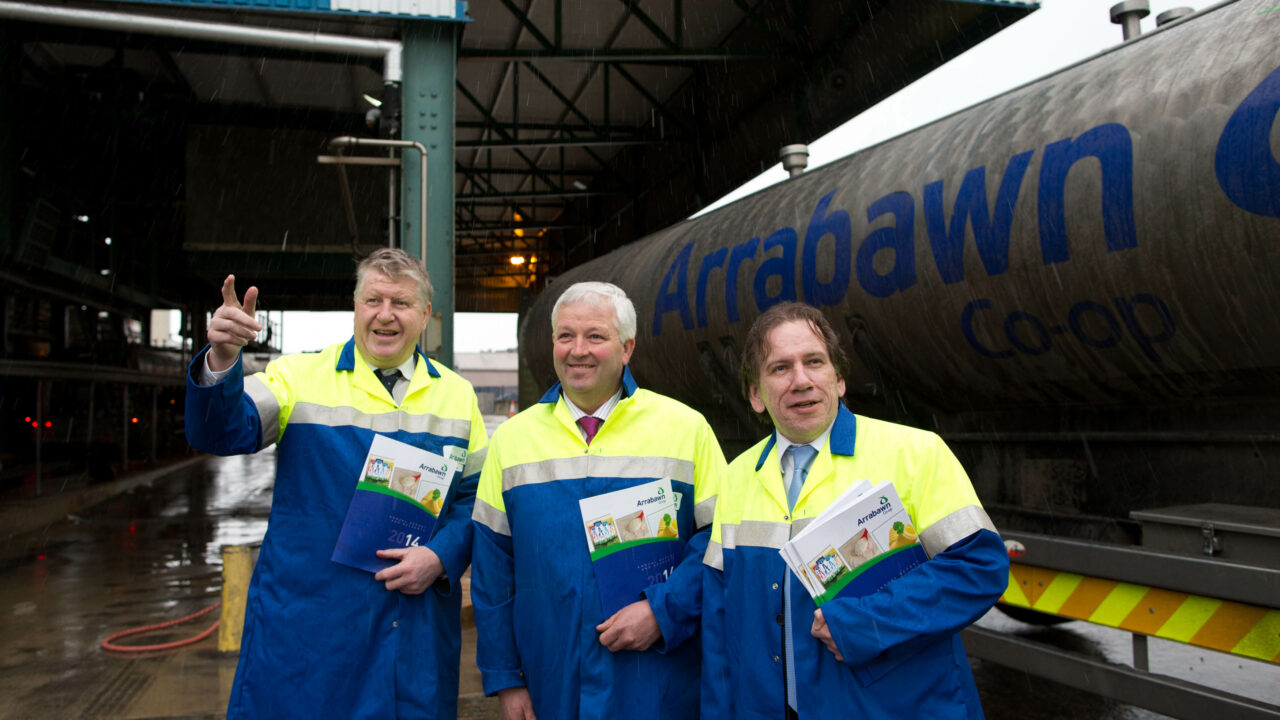Suppliers of Arrabawn Co-op received an additional €37 million in milk payments during 2017 versus the previous year, the company’s annual report shows.
Turnover soared by 25% in 2017, in what was reportedly a record revenue year for the co-op.
Arrabawn’s turnover rose to €249 million last year, following on from a “positive” 2016 – when turnover was at €199 million.
Headquartered in Nenagh, Co. Tipperary, and with suppliers across Munster, Leinster and Connacht, the co-op saw earnings before interest, taxes, depreciation and amortization (EBITDA) rise from €9.5 million to €10 million.
As well as this, it recorded a strong operating profit of €4.6 million. Shareholders’ funds also increased from €47.8 million to €51.1 million, with shareholder value now having grown by 36% over the past five years.
In terms of commodities, butter prices were at unprecedented levels at over €7,000/t. With intervention available for skimmed milk powders, the protein market was also supported – which helped to bolster the strong milk price, Arrabawn explained.
‘Strong performance’
It was reported that Arrabawn’s “strong performance” was aided by the co-op’s €40 million investment programme over the past five years.
This continued in 2017, including at its liquid milk processing plant at Kilconnell.
Meanwhile, further investment was also made at the company’s Nenagh operations – particularly through an effluent plant upgrade to “bring it in line with environmental best practice”, the co-op added.
2017 represented “a very strong year with excellent growth in all categories” for the company’s agri business.
Last year, feed sales “surpassed all previous records” – growing 17% to 150,000t.
‘A very successful year by any standards’
Commenting on the results, the CEO of Arrabawn Co-op, Conor Ryan, outlined that 2017 was “a very successful year by any standards”.
Ultimately, we were able to pay out an additional €37 million to our suppliers – which averages out at €40,000 per supplier; this significant increase was off the back of a positive 2016.
“There has been a very significant growth in milk supply, coming predominantly from existing suppliers – but we are also seeing new entrants to the market.
“The increase in supply has resulted in further investment requirements commencing last year and this will continue throughout 2018,” he said.
Furthermore, the performance in 2017 validates the investment strategy undertaken by Arrabawn this decade, co-op chairman Sean Monahan explained.
We were competitive through 2016, but 2017 saw us in a position to pass on significant milk price increases to our suppliers – reflecting market returns.
“We have also worked closely and supported our existing suppliers and new entrants through this growth phase across a range of initiatives,” the chairman concluded.
